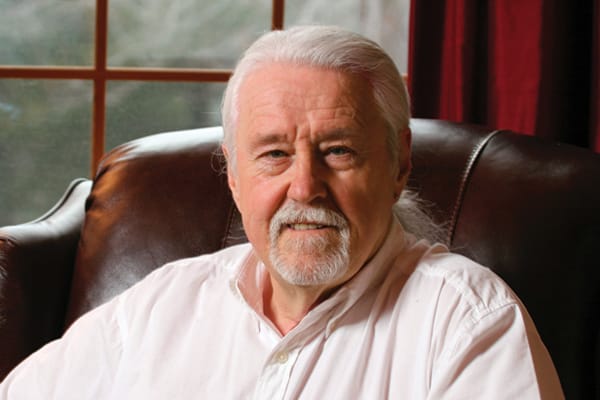Eight Atlantic Canadians were appointed to the Order of Canada on December 30, including Saltscapes' genealogy guru, Terry Punch. What inspired Terry to search for his own roots? And how did he react when he got the call from the Governor General's office?

SS: You must have been pleased when you heard you had been named to the Order of Canada.
TP: Yes. Psychologically, I danced a jig! Two years or more ago, somebody told me that I had been nominated, and I thought that was very flattering. I hadn't heard anything until late December when a woman phoned up - she must be used to doing this - and said, are you sitting down?
I said "Yes," and she said, "Would you accept the Order of Canada?"
I was stunned. I said, "At least you didn't knock me out of the chair!" and we both had a laugh. I don't know yet when it's going to be presented, but I expect some time in the spring.
SS: Do you know who nominated you?
TP: Yes, I do: Elsa Flack in Newfoundland. She founded the genealogical society in her province. We first met at a conference in Brandon, Man, in about 1986. I had already started the genealogical society here, so we've kept in touch ever since as friends and colleagues.
SS: What spurred your initial interest in genealogy?
TP: Well, I was a young man and I didn't believe all I was told. I had to prove that my dad wasn't lying to me, and that he was right when he said that my great-grandfather came from Ireland. I didn't think our name sounded very Irish - Punch seemed to be pretty English, but it was, in fact, Irish.
SS: How did you go about your research?
TP: I went to a place where I had hoped to find some records of the past. There wasn't as much then as there is now - we're talking about the late '60s. I told the man there what I was doing, and I asked him what kinds of records he had. He stood up and started to walk away from his desk, away from me, and then he opened a little door. Just before he shut it behind him, he said, "Those Irish are trouble wherever they go," and he slammed the door behind him.
I was left standing there. It was like a red flag to a bull - I didn't take it very well. [But then] I thought, "I'll show you," and I went off to look for other means of finding the information.
I had to do all sorts of things. I had to chase an archbishop around his residence; in those days, the records were all kept in his home, and people weren't allowed to see them. I had to torment him until he finally said, "Alright, you can look at them up to a certain year, as long as someone stays in the room with you." They're much more open now.
Then I went down to Chezzetcook, NS; one of my aunts was from there, and that put me in touch with the Acadian communities [around there]. …That's what got me hooked. I started looking at all the Irish names.
A big family name there is Murphy, but they are as French as French can be. They had become totally assimilated, and that made me interested in how many other Irish are around Nova Scotia, and people don't even realize we're here.
Because of my work, I've become very conscious of the multicultural, multilingual background we have in this province. That's a terrific plus.
SS: Do you have any words of advice to people who are just starting to search for their roots?
TP: I sure do. Throw away all your preconceptions. Keep an open mind about people in the past as far as their religion and their ethnic origin and social class, because you may get surprises. You have to be open to the possibility that a leg in the road will take you where it takes you.
